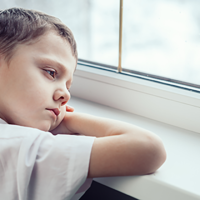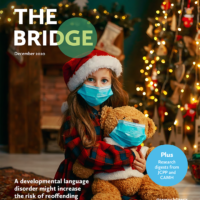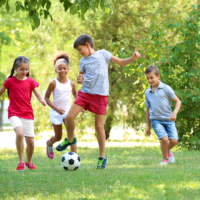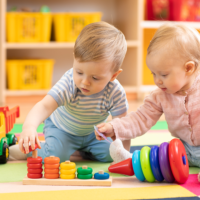Research digest
-

Do brain function abnormalities lead to substance use, or vice versa?
New research has, for the first time, investigated the direction of links between brain function and substance use throughout adolescence. Jungmeen Kim-Spoon and colleagues studied 167 adolescents who were assessed annually for four years from 13-14 years old.
Read more -

Do children with social anxiety disorder benefit from social skills training?
Social anxiety disorder (SAD) in children can be difficult to treat, as evidenced by the varied outcomes reported post-treatment.1,2 Although childhood treatments for SAD commonly involve at least some social skills training,3 it isn’t clear whether children with SAD have particular difficulties with social skills. There is therefore a need to better establish whether social skills are an effective target for treating SAD.
Read more -

Sleep problems from infancy are linked with impaired well-being in middle childhood
Researchers in the USA and Australia have found that sleep disturbances from early childhood are associated with reductions in well-being at age 10-11 years old. Ariel Williamson and colleagues came to this conclusion after analysing data from >5,000 children enrolled in the Longitudinal Study of Australian Children – Birth Cohort.
Read more -

December 2020 – The Bridge
Welcome to the December 2020 issue of The Bridge. This year has been extremely challenging for our field, as we’ve needed to understand and address the impact of the coronavirus pandemic on young people’s mental health.
Read more -

Do ADHD and ASD symptoms have similar characteristics in childhood and young adulthood?
Lucy Riglin and colleagues in the UK have investigated whether ADHD and ASD traits in young adulthood show similar characteristics to those reported in childhood.
Read more -

Does late-onset ADHD share the same neurocognitive markers as childhood-onset ADHD?
Researchers in the Netherlands have published their findings from a 6-year prospective, longitudinal study that aimed to identify neurocognitive markers of late-onset attention-deficit/hyperactivity disorder (ADHD).
Read more -

Is infant empathy linked with later externalizing problems?
Until recently, it has been assumed that young infants cannot feel empathy for others.1 However, emerging data suggest that this might not actually be the case.2 Now, Yael Paz and colleagues have examined empathy development during the first years of life, analysing data from 165 infants involved in a longitudinal, prospective study.
Read more -

A developmental language disorder might increase the risk of reoffending
Researchers in the UK are the first to identify the potential impact of a developmental language disorder (DLD) on reoffending risk in young people. Maxine Winstanley and colleagues recruited 145 young offenders to their study.
Read more -

Consistency is needed when measuring and reporting outcomes in child and adolescent anxiety disorders trials
This year, Cathy Creswell, Maaike Nauta and colleagues from around the world convened a series of international activities based around measuring and reporting in treatment trials for child and adolescent anxiety disorders.
Read more -

Does an internet gaming disorder prospectively predict psychiatric symptoms?
A minority of children and adolescents develop addiction-like engagement in gaming that is associated with impaired function.1 Preliminary data suggest that affected children with these symptoms, indicating an Internet Gaming Disorder (IGD), might present with more symptoms of common psychiatric disorders than those without an IGD.
Read more